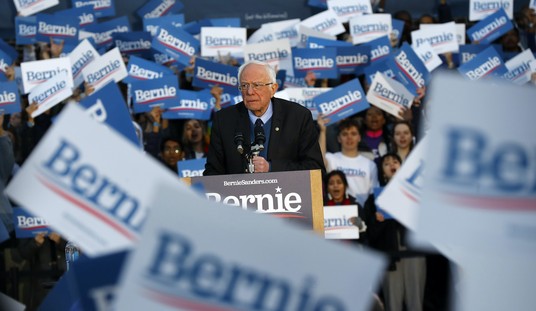Donald Trump won’t get immediate relief from the Wisconsin state supreme court, but technically his lawsuit over the election isn’t dead either. The court voted in a narrow 4-3 decision that the Trump v Evers lawsuit brought by the campaign should originate in a state district court rather than come directly to the top court first. Notably, none of the concurrences or dissents discuss any factual issues presented in the complaint:
The Wisconsin Supreme Court on Thursday refused to hear President Donald Trump’s lawsuit attempting to overturn his loss to Democrat Joe Biden in the battleground state, saying the case must first wind its way through lower courts.
The legal defeat was the latest in a string of losses for Trump’s post-election lawsuits. Judges in multiple battleground states have rejected his claims of fraud or irregularities. …
Trump had wanted the conservative-controlled Wisconsin Supreme Court to take the case directly, saying there wasn’t enough time to wage the legal battle by starting first with a lower court given the looming Dec. 14 date when presidential electors cast their votes. But attorneys for Gov. Tony Evers and the state Department of Justice argued the law required the lawsuit to start with lower courts.
It’s worth noting that the Wisconsin supreme court has a narrow conservative majority, leading some to believe that Trump might have an edge in this decision. It didn’t work out that way, but it might have come close. The seven justices disagreed sharply on the role of the top court in emergency situations as the one posited here by the plaintiffs. Writing for the majority after the per curiam order, Justice Brian Hagedorn — more or less the court’s center these days — wrote that the circuit courts are designed to be finders of fact. In fact, Hagedorn writes, the state’s statutes demand that division, but even apart from that the factual disputes are too involved to reconcile at an appellate level:
Even if this court has constitutional authority to hear the case straightaway, notwithstanding the statutory text, the briefing reveals important factual disputes that are best managed by a circuit court.2 The parties clearly disagree on some basic factual issues, supported at times by competing affidavits. I do not know how we could address all the legal issues raised in the petition without sorting through these matters, a task we are neither well-positioned nor institutionally designed to do. The statutory process assigns this responsibility to the circuit court. Wis. Stat. § 9.01(8)(b) (“The [circuit] court shall separately treat disputed issues of procedure, interpretations of law, and findings of fact.”).
We do well as a judicial body to abide by time-tested judicial norms, even—and maybe especially—in high-profile cases. Following the law governing challenges to election results is no threat to the rule of law. I join the court’s denial of the petition for original action so that the petitioners may promptly exercise their right to pursue these claims in the manner prescribed by the legislature.
Justice Patience Roggensack dissented, arguing that the supreme court could take the case while assigning the fact-finding issues to a circuit court in parallel while the top court reviewed the legal arguments surrounding them. Inevitably, the case would still come before them, Roggensack points out — why not expedite it?
However, fact-finding may be central to our evaluation of some of the questions presented. I agree that the circuit court should examine the record presented during the canvasses to make factual findings where legal challenges to the vote turn on questions of fact. However, I dissent because I would grant the petition for original action, refer for necessary factual findings to the circuit court, who would then report its factual findings to us, and we would decide the important legal questions presented.
I also write separately to emphasize that by denying this petition, and requiring both the factual questions and legal questions be resolved first by a circuit court, four justices of this court are ignoring that there are significant time constraints that may preclude our deciding significant legal issues that cry out for resolution by the Wisconsin Supreme Court.
That’s actually a pretty good point. I’m skeptical that this lawsuit has any chance of succeeding, especially on the remedies sought. But the state supreme court should have enough jurisdiction to manage this case, allowing circuit courts to conduct the fact-finding activities while the high court deals with the overriding legal questions involved.
In a separate dissent that includes all three in the minority (including Roggensack), Justice Rebecca Grassl Bradley writes that the majority ignores the obvious time pressure to get this right. Wisconsin now has only five days before its Safe Harbor deadline for the Electoral College, she argues, which means this is not a good time to punt to a lower court:
The consequence of the majority operating by whim rather than rule is to leave the interpretation of multiple election laws in flux—or worse yet, in the hands of the unelected members of the WEC. “To be free is to live under a government by law . . . . Miserable is the condition of individuals, danger is the condition of the state, if there is no certain law, or, which is the same thing, no certain administration of the law . . . .” Judgment in Rex vs. Shipley, 21 St Tr 847 (K.B. 1784) (Lord Mansfield presiding). The Wisconsin Supreme Court has an institutional responsibility to decide important questions of law—not for the benefit of particular litigants, but for citizens we were elected to serve. Justice for the people of Wisconsin means ensuring the integrity of Wisconsin’s elections. A majority of this court disregards its duty to the people of Wisconsin, denying them justice.
“No aspect of the judicial power is more fundamental than the judiciary’s exclusive responsibility to exercise judgment in cases and controversies arising under the law.” Gabler v. Crime Victims Rights Bd., 2017 WI 67, ¶37, 376 Wis. 2d 147, 897 N.W.2d 384. Once again, a majority of this court instead “chooses to sit idly by,”7 in a nationally important and time-sensitive case involving voting rights and the integrity of Wisconsin’s elections, depriving the people of Wisconsin of answers to questions of statutory law that only the state’s highest court may resolve. The majority’s “refusal to hear this case shows insufficient respect to the State of [Wisconsin], its voters,”8 and its elections.
Where does that leave Trump in Wisconsin? He will have to refile the complaint at the district level, which presumably the campaign will do immediately. That will require a hearing on both the factual and legal disputes in question, but with very little time left to resolve either or both. Again, the state supreme court didn’t touch on issues such as the remedies Trump seeks and their violation of the Federal Elections Act, in which Congress requires states to stick with the method chosen for appointing electors status quo ante. It does not allow legislatures to appoint electors when popular votes have already taken place, a point that the Pennsylvania state supreme court made in its denial of in Kelly Parnell et al, although only in its concurrences.
Perhaps the courts in Wisconsin can expedite this case. Right now, however, it looks as though Trump’s running out of time.








Join the conversation as a VIP Member